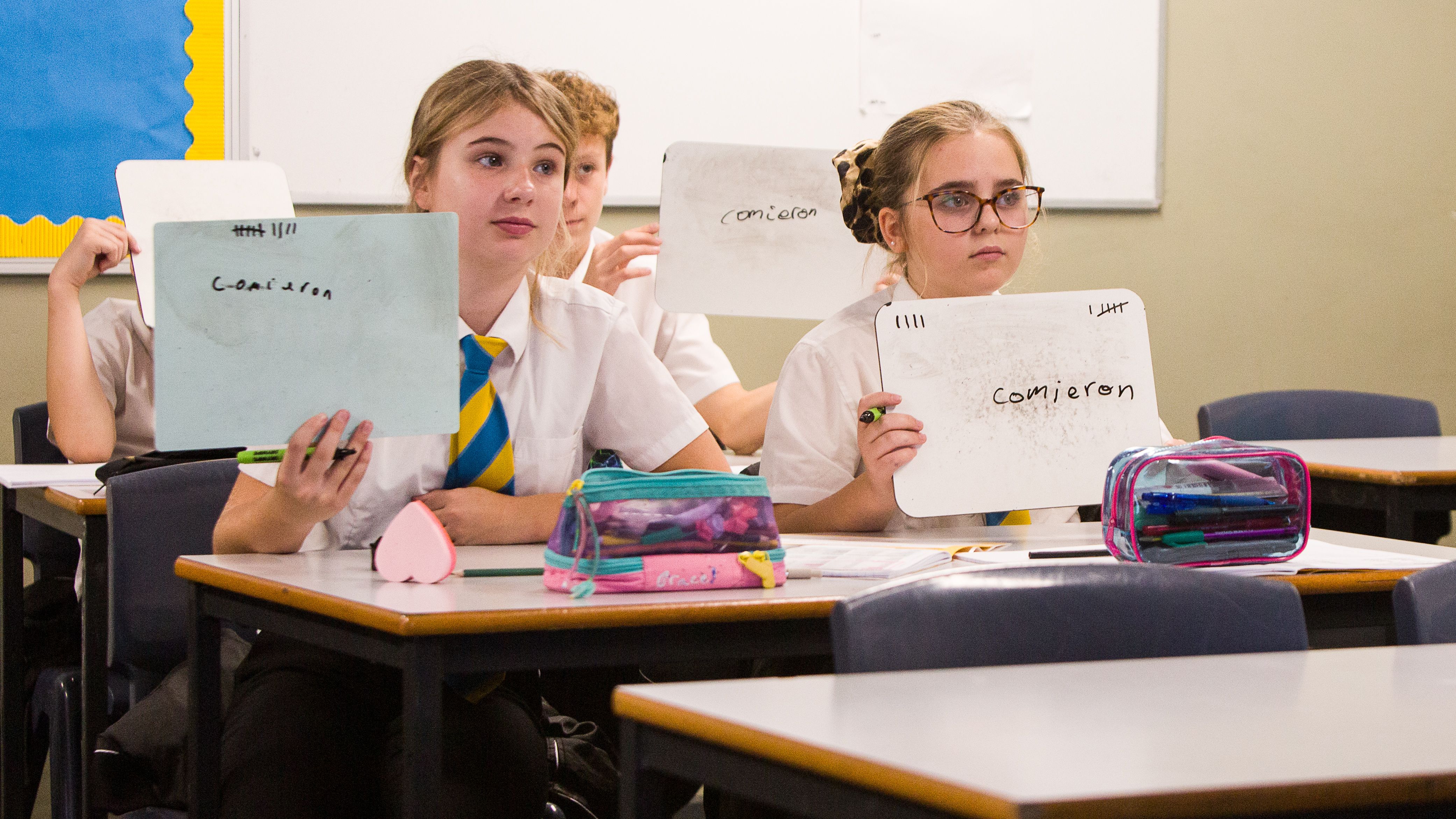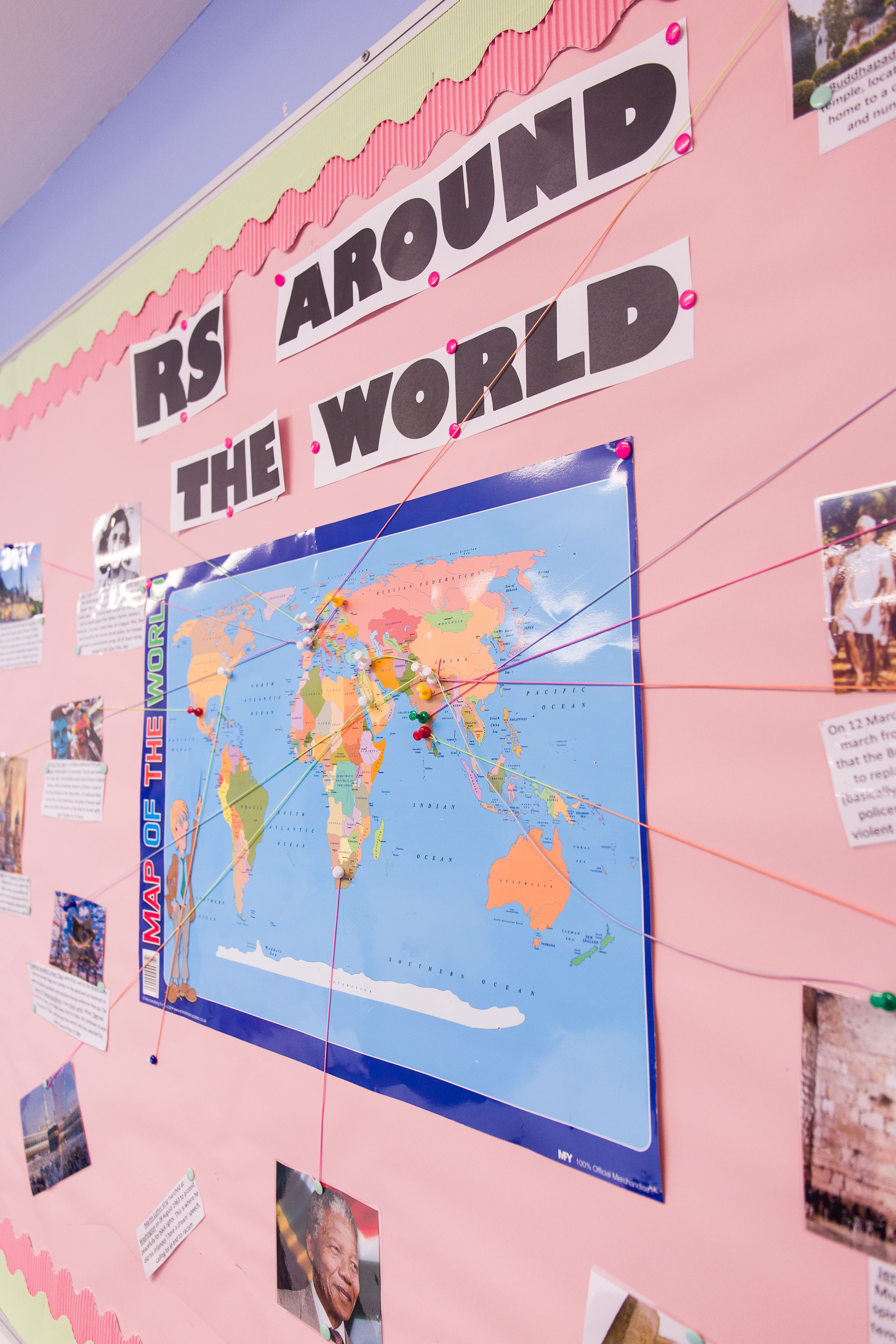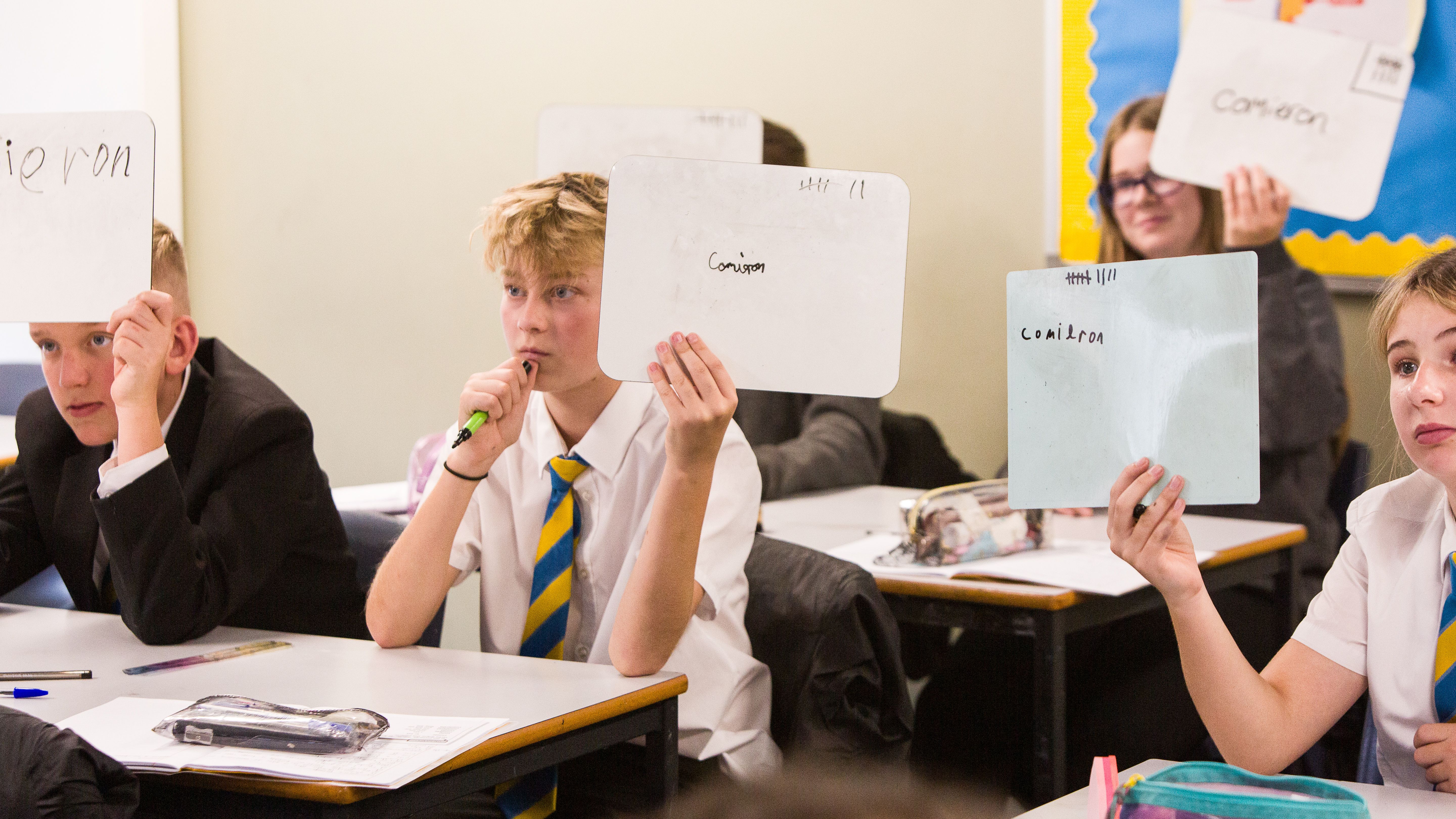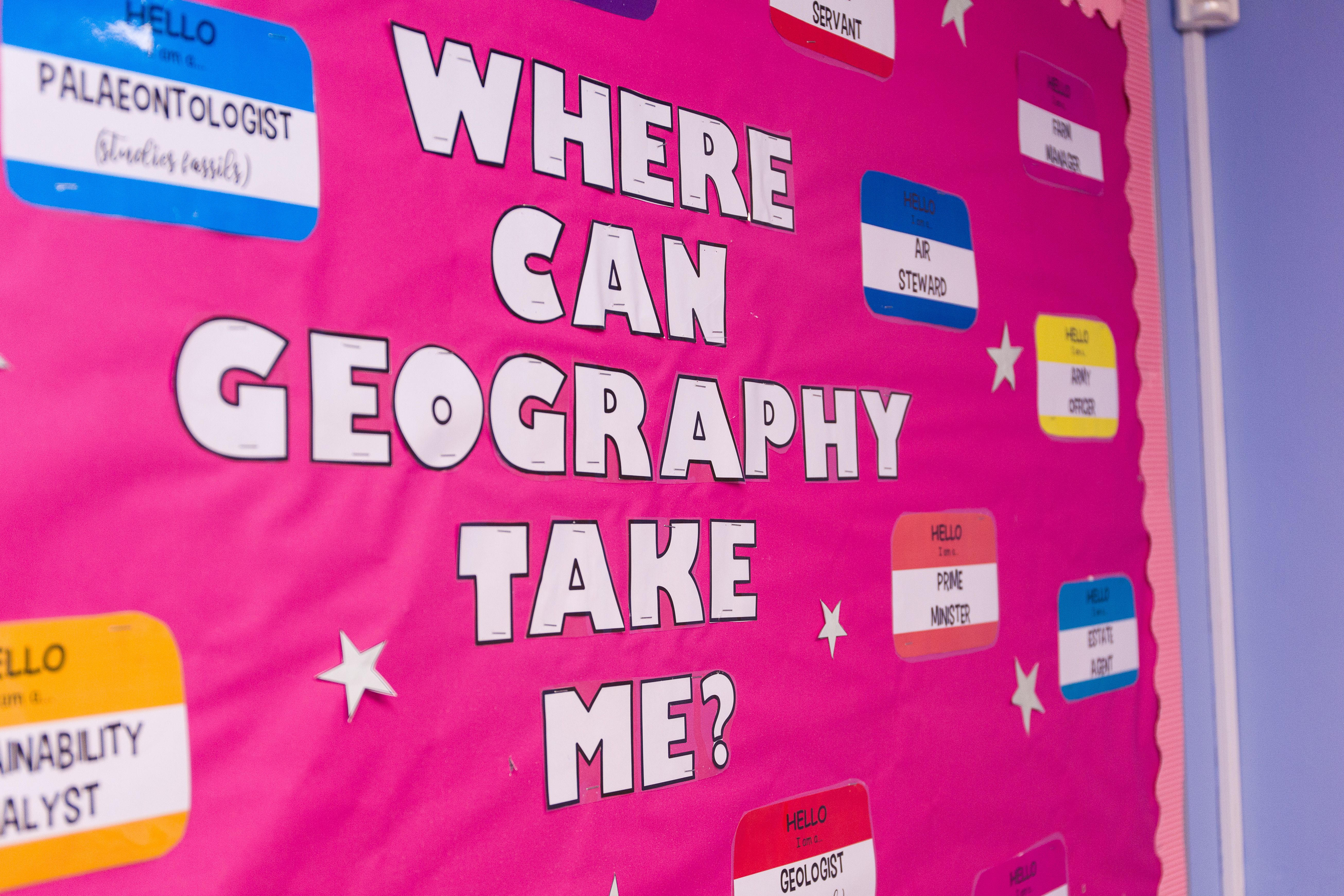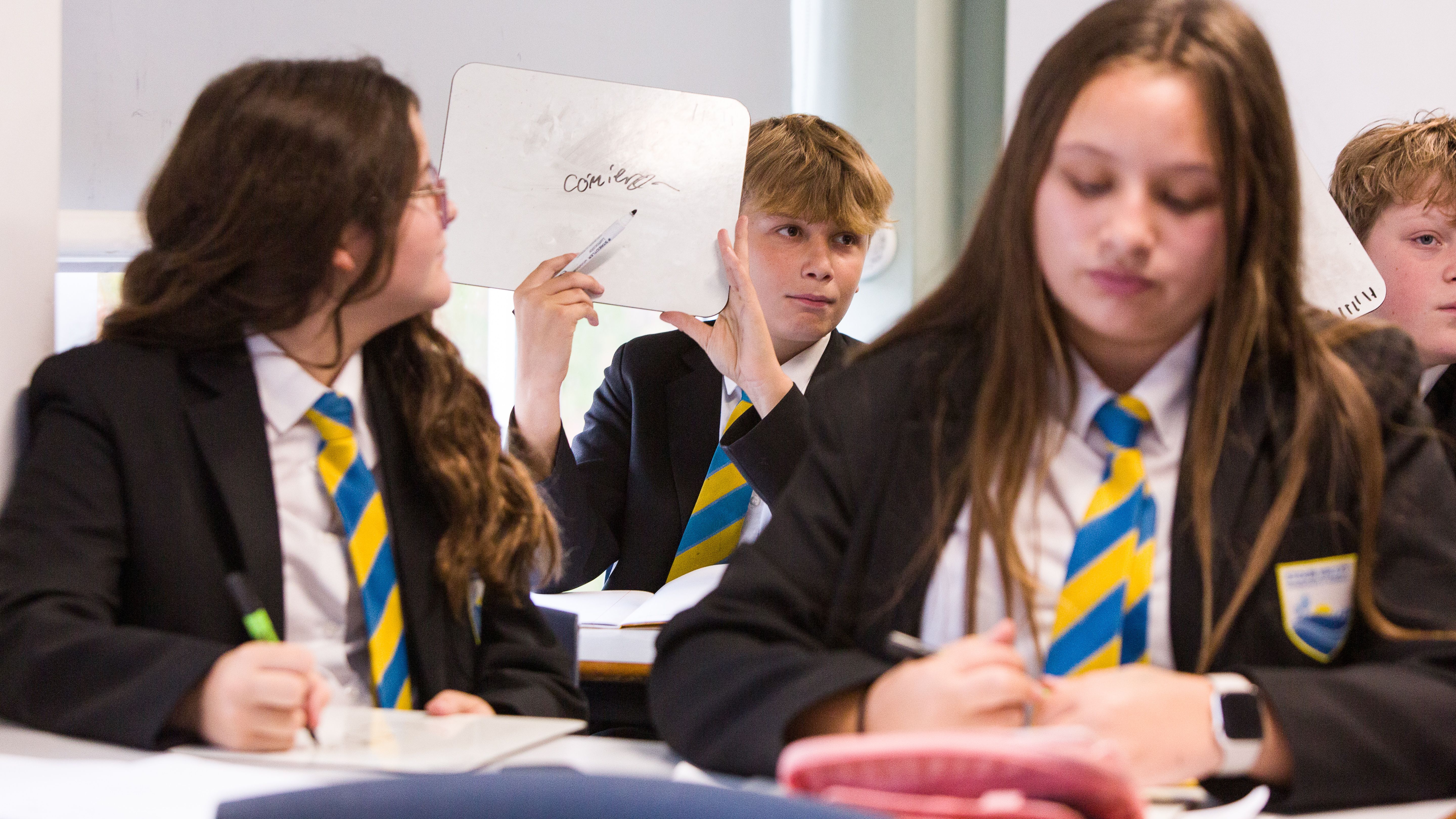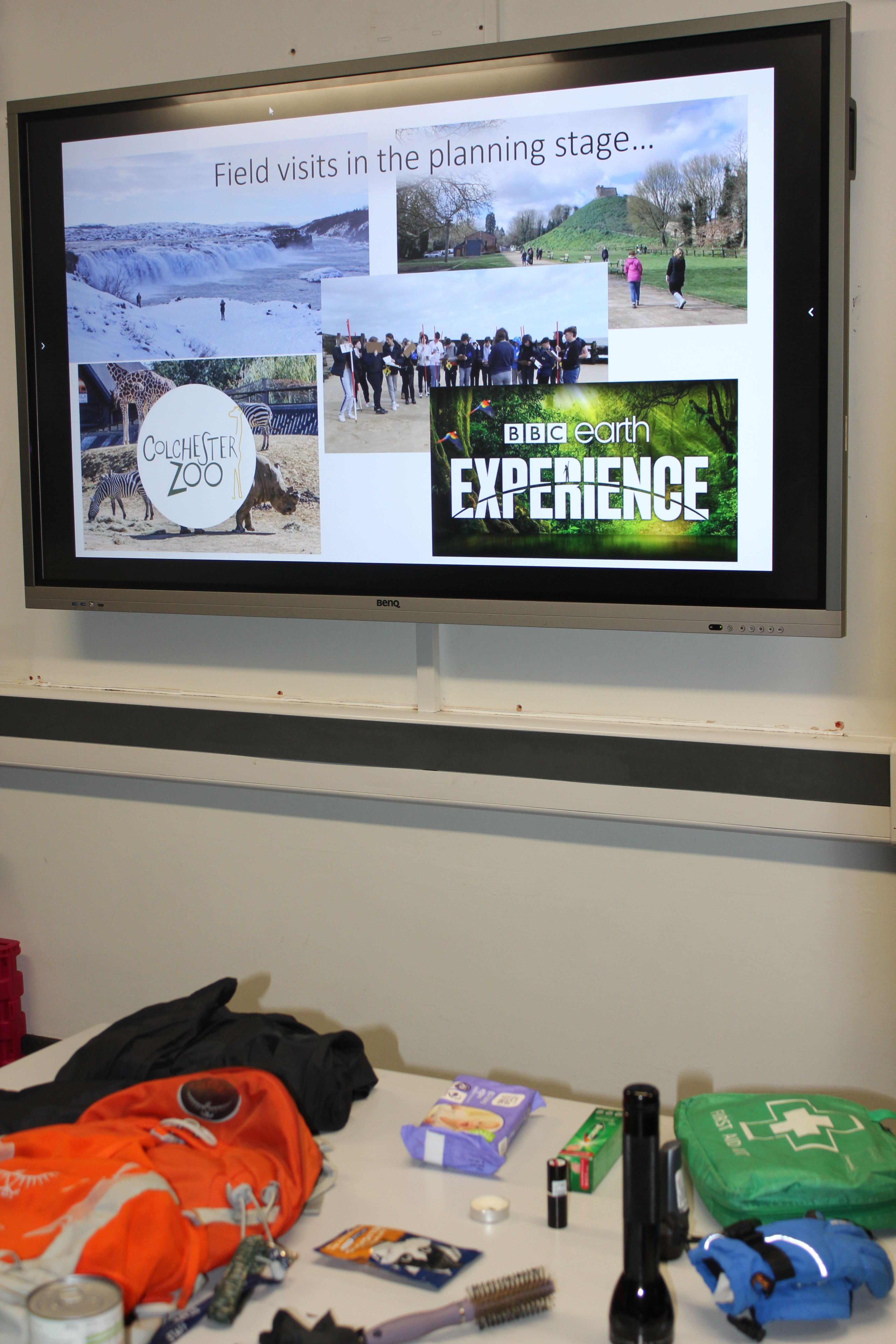Curriculum
- Art
- Computer Science
- Drama
- English
- Food Technology
- Geography
- History
- Maths
- Modern Foreign Languages
- Music
- PSHE
- Physical Education
- Psychology
- Religious Studies
- Science
- Technology
- Exams
- Exam Results
- GCSE Subjects
- Extra-Curricular Clubs and Enrichment Activities
- Careers
- Attitude to Learning Descriptors
- Special Educational Needs
- Go 4 Schools Parent/Carer User Guide
Geography means to write about Earth, and this planet Earth we inhabit contains both natural and human features. At the core of Geography at SVCS is the desire to give students a deep understanding of our planet and how the physical, human, and environmental elements interact. Anchoring all of this is the mantra of 'becoming a better Geographer'. In essence, gaining a deeper interest, so that they may be fully informed, aware, and pro-active about the issues that they will face now and in the future.
Key Stage 3
Key stage 3 Geography builds on the foundations laid at KS2 (See KS2_KS3_KS4 progression document) and builds on this to develop the geographical knowledge, understanding and skills, that underpin the GCSE curriculum whilst broadening students understanding of our ever complex and changing world. KS3 Geography allows students to acquire a range of skills and various opportunities to practice and enhance them. These skills include fieldwork skills both inside and outside the school grounds, problem solving and decision-making skills through units of work and the enquiry process. In addition, students benefit from developing their literacy and numeracy skills through extended writing and constructing graphs making use of ICT skills to demonstrate these. The curriculum also allows pupils to develop and clarify their attitudes and values towards people, places, and environments in a multicultural society as part of the global community.
Key strands of Geography at SVCS:
Strand 1: Locational knowledge – being able to locate places around the world. Making use of geographical facts to describe what places are like, particularly those studied throughout the course.
Strand 2: Explanation writing – being able to accurately explain different sequences of events using geographical terminology to say how places and landscapes change over time. Making links and interactions between geographical processes.
Strand 3: Discursive writing – being able to produce a balanced argument including a range of reasons that make places around the world unique. Developing these points with facts, figures and balanced opinions.
Strand 4: Geographical enquiry – being able to plan, conduct, analyse and evaluate an enquiry into a geographical process or to investigate the validity of a theory.
Strand 5: Cartographical skills – being able to accurately use a wide range of maps to identify geographical features from OS maps and to interpret further information from them, such as the reasons why human features are in a location or the formation of physical features.
Strand 6: Atlas and Map skills – being able to accurately locate places on various styles of maps and describe geographical patterns, information and data related to physical and human landscapes.
Strand 7: Graphical skills – being able to construct different types of graphs to show the relationship between data sets and their reliability as a form of presentation. In addition, be able to analyse the graphs and describe the patterns that are shown.
Strand 8: Numerical and Statistical Skills – being able to use a range of techniques to use data to explain geographical processes and patterns.
GCSE Geographers @ SVCS
Key Stage 4
Throughout KS4 the Geography department continues the mantra of ‘becoming a better Geographer’ The KS4 Geography course follows closely the requirements as laid out by the exam board whilst making students aware of current geographical events and fine tuning the skills developed at KS3 (as highlighted above) that are required for further study at A-Level and those that many employers look for. During the course students will understand further about their place in the world, understanding about how and why the world is developing and changing, as well as acquiring the skills needed to respond and adapt to these changes.
Students are supported using revision sessions, guides, and internet links.
We follow the Edexcel Geography B: Investigating Geographical Issues course which explores how geography can help us make sense of our fast-paced, ever-changing world.
Students will study a range of topics over the two years, these build on many topics studied at KS3 and provide students with the opportunities to hone those skills that they have been working on throughout KS3. Students investigate a range of physical topics investigating tectonic and weather hazards and how these impact on both developing, emerging, and developed countries. In addition to this, students investigate a range of changing environments, these include our changing climate through past and present evidence as well as interrogating both the positive and negative impacts. The study of our changing planet continues through investigating the changing nature of both physical and human environments, as part of these unit’s students continue to develop and hone their fieldwork skills from KS3 as part of two pieces of fieldwork, these skills are also a key component of A-level courses. The final aspect of the KS4 course builds on the ecosystem unit at KS3 investigating human impact on ecosystems, and resources, the exam element for this aspect involves making a geographical decision based on evidence provided to them.
Exam structure
|
Paper 1: Global Geographical Issues |
|
|
How it’s assessed
|
|
Paper 2: UK Geographical Issues |
|
|
How it’s assessed
|
|
Paper 3: People and Environment Issues – Making Geographical Decisions |
|
|
How it’s assessed
|
Extra-curricular opportunities within Geography (so far…)
Year 7
Micro-climate fieldwork around the school site
Year 8
Virtual river fieldwork
Year 9
Plastics independent fieldwork around school/local area
GCSE
Coastal fieldwork at Walton-on-the-Naze
Urban/Rural fieldwork to local area
River visit to Clare Country Park


